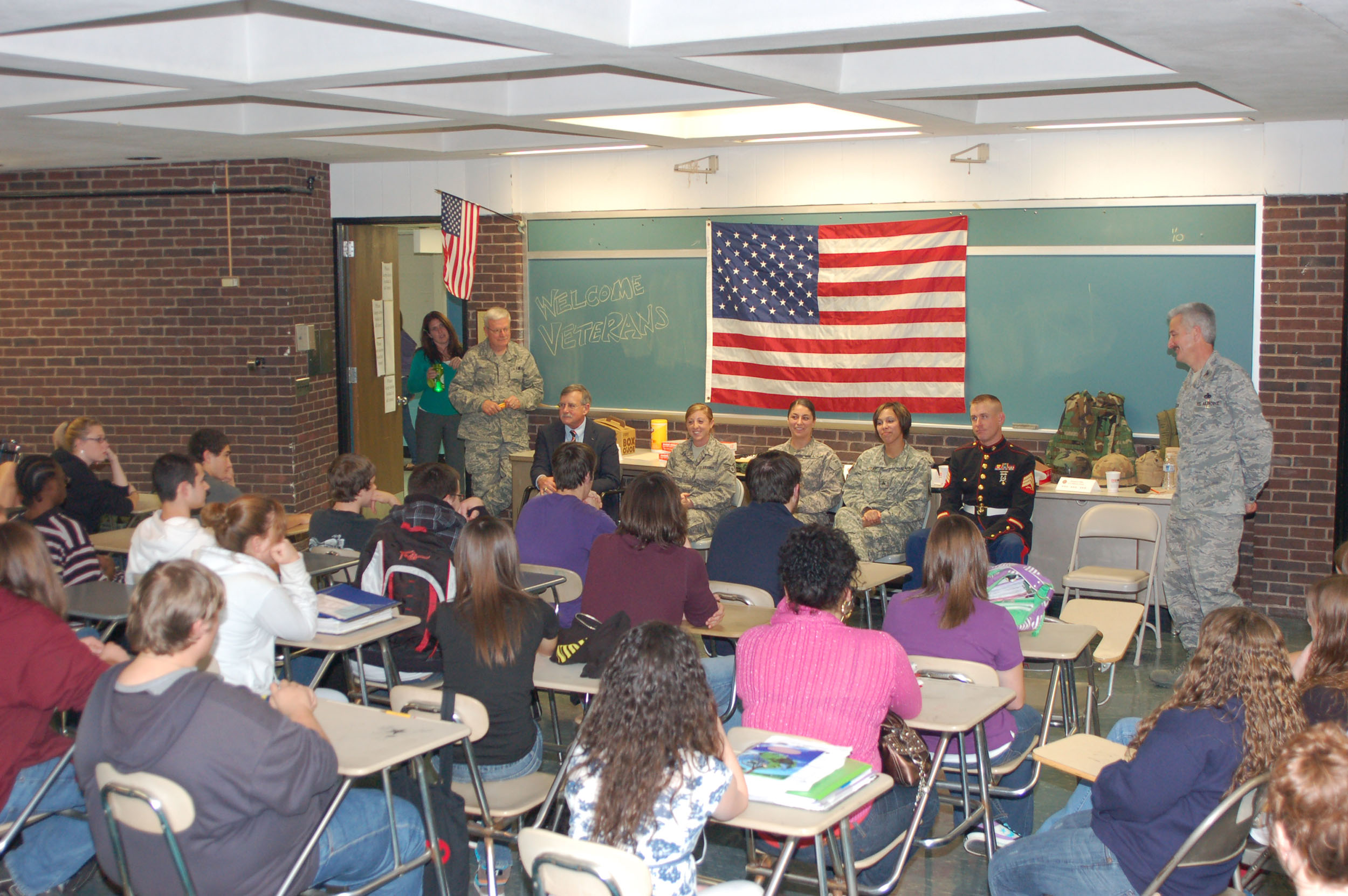Maryland’s Francis Scott Key High School is connecting students with local veterans and other role models in the community as part of a concerted effort to build good character, an ingredient parents cited as a critical component of quality education during interviews with the Institute for Advanced Studies in Culture.
Audrey Cimino, executive director of the Community Foundation of Carroll County, described in a recent editorial for the Carroll County Times how the FSK Advisory Council and Academic Boosters have deliberately worked to emphasize academic achievement and character education.
The FSK Advisory Council consists of school administrators, faculty, alumni, parents, business, community, and political leaders who came together five years ago to make Advanced Placement tests more accessible to low-income students through scholarships, and boost attendance through McDonald’s gift cards.
But the group is impacting students in other ways beyond academics and attendance.
“The Veterans Day Celebration at FSK has brought the students face-to-face with American heroes and both groups have benefited. The vets get to tell their stories and get to know this new generation,” Cimino wrote. “The students get to hear firsthand the history they have only read about and to appreciate the sacrifices made by previous generations that impact their lives today.”
Last week, the FSK Advisory Council unveiled a Wall of Excellence at the high school—”a place where FSK alumni could be held up to the current student body as examples of what former students had achieved and what was possible for them to achieve as well,” according to Cimino.
“Character counts and it is on display at these celebrations,” she wrote.
The Institute’s “Culture of American Families Interview Report” makes clear it’s very important to present students with role models, particularly from previous generations.
It also highlights the importance of using the word “character” or character’s attending virtues.
In the Institute’s interviews with parents—3,500 pages of transcripts—the words “character” and “virtue” were used only 26 times.
“Parents clearly cared about the character of their children,” the report found, but they used other terms.
Qualities like “courage” or “humility” are difficult to measure, but “the words we use have the power to create the worlds we inhabit,” which is why we have to be intentional about words that are more commanding, authoritative, and inspiring, according to the CAF report.



